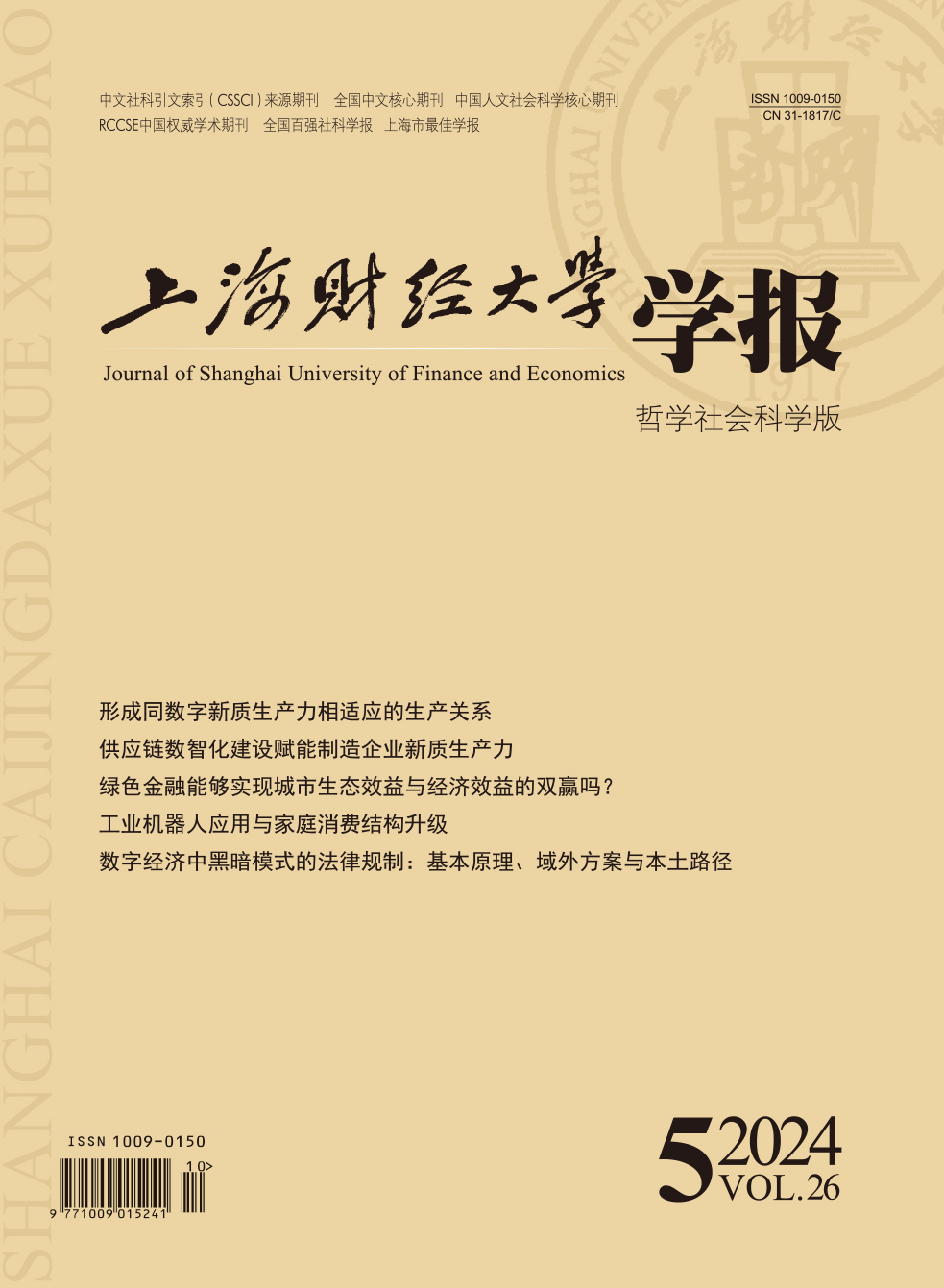With the rapid development and wide application of industrial robots, technological factors behind the changes in household consumption decisions have attracted increasing attention. Based on the data of 2010-2020 China Family Panel Studies (CFPS), this paper systematically explores the impact of the application of industrial robots on household consumption structure by taking the change of household consumption structure as an entry point. The study shows that the application of industrial robots hinders the upgrading of household consumption structure, which is mainly manifested in the reduction of the proportion of development and enjoyment consumption, and the influence mechanism involves the weakening of household income-generating capacity and the double contraction effect of social networks. The results of segmenting consumption expenditure types show that, in the face of the competitive pressure brought by robots, parents tend to cut their own investment in human resources to increase the investment in their children’s education in the internal allocation of educational resources as a defense strategy against future technological impact. Heterogeneity analysis shows that significant differences are presented in different family backgrounds and labor market conditions and regions due to technological progress bias. In further analysis, the National Rural E-commerce Comprehensive Demonstration Policy mitigates to some extent the localized employment problems caused by robot applications, and indirectly moderates the unfavorable trend of the suppressed household consumption structure by encouraging and supporting the migrant worker groups to return to their hometowns to start their own businesses and find employment in their neighborhoods. This paper deepens our understanding of the economic consequences of industrial robot applications and provides valuable theoretical references and practical guidance on how to effectively counteract the negative impact of robot applications on consumption capacity and enhance the internal dynamics of the domestic macro-cycle while ensuring efficiency gains and supply optimization.
 / Journals / Journal of Shanghai University of Finance and Economics
/ Journals / Journal of Shanghai University of Finance and EconomicsJournal of Shanghai University of Finance and Economics
LiuYuanchun, Editor-in-Chief
ZhengChunrong, Vice Executive Editor-in-Chief
GuoChanglin YanJinqiang WangWenbin WuWenfang, Vice Editor-in-Chief
Application of Industrial Robots and Upgrading of Household Consumption Structure: From the Perspectives of Income Level and Social Network Impact
Journal of Shanghai University of Finance and Economics Vol. 26, Issue 05, pp. 75 - 91 (2024) DOI:10.16538/j.cnki.jsufe.2024.05.006
Summary
References
Summary
Cite this article
Ye Jinsong, Fang Jiabin, Huang Yuanzhe, et al. Application of Industrial Robots and Upgrading of Household Consumption Structure: From the Perspectives of Income Level and Social Network Impact[J]. Journal of Shanghai University of Finance and Economics, 2024, 26(5): 75-91.
Export Citations as:
For




 4006
4006  6477
6477

